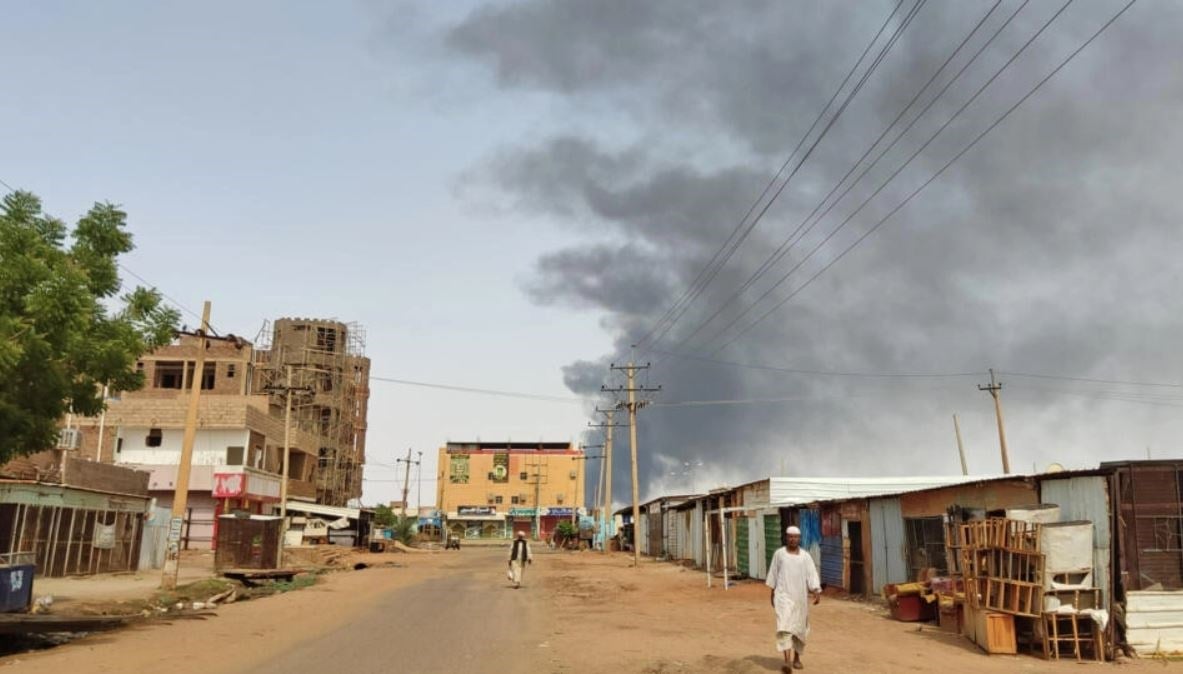20 civilians killed in an airstrike targeting Khartoum
Despite nearly five months of conflict, there are no signs of the violence subsiding.
-

Smoke billows in southern Khartoum on June 12, 2023, during fighting between Sudan's army and paramilitaries. (AFP)
The neighborhood's resistance committee stated that the death toll resulting from the airstrikes in southern Khartoum has now reached 20 civilian casualties. These committees, previously involved in organizing pro-democracy protests, are now offering assistance to families caught in the conflict between the army and paramilitary groups.
In a previous statement, they mentioned that the victims included two children and expressed concern that additional fatalities might have gone unreported because some bodies couldn't be transported to hospitals due to severe burns or being torn apart during the bombings.
Since the conflict between the regular army and the paramilitary Rapid Support Forces began on April 15, an estimated 5,000 people have lost their lives, according to the Armed Conflict Location & Event Data project.
The Sudanese Armed Forces have control of the airspace and have conducted frequent airstrikes, while the RSF fighters dominate the streets of the capital.
Western countries have accused the paramilitaries and allied militias of ethnically motivated killings in the western Darfur region, leading to a new investigation by the International Criminal Court into alleged war crimes. The regular army has also faced allegations of abuses, including a July 8 airstrike that resulted in the deaths of approximately two dozen civilians.
More than half of Sudan's 48 million population now require humanitarian aid and protection, with six million at risk of famine, as per the United Nations. Despite challenges such as insecurity and looting, the UN has managed to provide aid to millions in need.
The war has internally displaced around 3.8 million people, with another million crossing borders into neighboring countries. Among the displaced are nearly 2.8 million from Khartoum, accounting for more than half of the capital's pre-war population of around five million.
Those who remain in Khartoum are struggling to survive, rationing water and electricity. The resistance committees in Khartoum have played a crucial role in providing relief, helping rescue survivors from bombed buildings, delivering medicine despite gunfire on the streets, and documenting atrocities committed by both sides.
Despite nearly five months of conflict, there are no signs of the violence subsiding. Witnesses reported on Sunday that the army continued to target RSF positions in northern Khartoum using artillery and rocket fire.
Read more: Hemedti's vision out of crisis: 'Establishing the new Sudanese state'

 3 Min Read
3 Min Read








